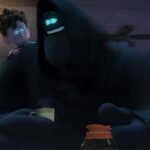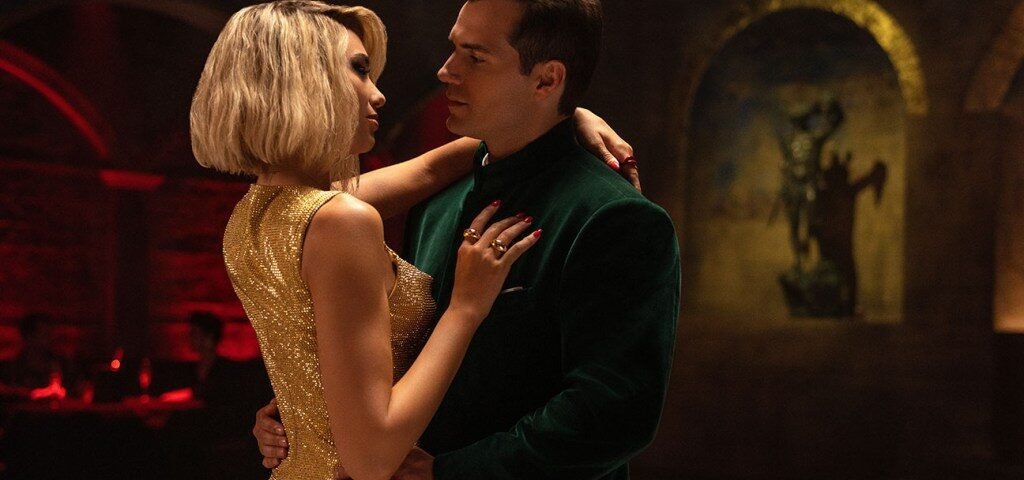


‘Bushman’ Review: Restored Indie Gem Captures an Unsettling Collision of Real Life and Fiction
February 4, 2024


‘Orion and the Dark’ Review: Jacob Tremblay and Paul Walter Hauser in Clever Animation Penned by Charlie Kaufman
February 5, 2024Director Matthew Vaughn and screenwriter Jason Fuchs offer up a spoof of espionage antics, with a side order of romance, starring Bryce Dallas Howard and Sam Rockwell.
Argylle
Arghhhhh!
When British producer-director Matthew Vaughn’s latest had its red-carpet premiere in London in mid-January 2024, the film made local headlines for reasons probably not intended by the filmmakers and their distributor, Universal. Alongside the usual PR-driven fluff about the sparkly frocks stars Dua Lipa and Bryce Dallas Howard were wearing, and the argyle-patterned evening gown sported by producer Claudia Schiffer (who is also Vaughn’s partner), there was much ado about Schiffer’s key accessory of the evening: a matching backpack with a round plastic window enclosing her cat Chip, a fetching gray Scottish Fold who also plays a major role in the film.
This feline-themed kerfuffle is worth mentioning because there’s a strong chance that this bout of negative publicity might seem like good press once reactions to Argylle start landing. Sure, it’s entirely possible that the film will find a constituency who will love its mirthless, shouty performances, its tortured random plot twists and its appallingly shonky-looking CGI. But there is also a distinct possibility audiences will turn up their noses at this like it’s a fresh litter box deposit.
Readers who are extremely spoiler adverse are advised to read no further, because what little fun the film has to offer is baked into the way the plot keeps wrongfooting the viewer. Taking inspiration from James Bond movies by way of the Mission: Impossible franchise, the opening sequence seems to jump into action in medias res as it introduces a smooth, dad pun-dropping spy named Argylle (Henry Cavill), working a case in a picturesque corner of Greece.
After busting a few weird-looking moves on a dance floor with vampish antagonist Lagrange (Dua Lipa), Argylle sees her escape his grasp, her henchfolk killing his colleague Keira (Ariana DeBose) at the entrance to the night club along the way. Argylle takes off after Lagrange, resulting in a massively destructive race through the town that is stopped only when Argylle’s muscled techie wingman Wyatt (John Cena) snatches her off a motorcycle.
Just when the scene takes a dramatic turn, a hard cut reveals this is not the reality of the film itself, but a fictional world being written by waitress-turned-novelist Elly Conway (Bryce Dallas Howard, in sad-girl mode, along the lines of her character in the Black Mirror episode Nosedive). Although she’s the successful author of a series of novels about super-spy Argylle, Elly lives a quiet life in a secluded house in Colorado, with only her cat Alfie for company. (The aforementioned Chip is credited as the performer, although appallingly unconvincing CGI is used for some of Alfie’s stunts and presumably a few stand-in cats or even fakes in the many scenes where he’s stuck inside that backpack, barely visible.)
So far, so much of this is in the film’s trailer. But what the previews don’t show is how Elly seems to be having hallucinations throughout, often “seeing” her character Argylle fighting off baddies in one moment, then Aiden finishing the move the next, suggesting they might be one and the same in some way.
As the couple, or trio if you include Alfie, go on the run, ending up in London and an assortment of other evil lairs and exotic locales in the Middle East and the South of France, it becomes clear that life imitates a fair bit of Elly’s art. Or maybe it’s the other way around? Either way, Vaughn and screenwriter Jason Fuchs (Wonder Woman) are quite pleased with all this meta-level tricksiness. It even goes beyond the film itself, as an Argylle book attributed to Elly Conway, a spy novel, has been published and is already on sale. (Copies were given away at the premiere.)
Back in the day, that kind of self-referential narrative gamesmanship was fun, the sort of thing people liked to call postmodern, with its roots in the fiction of Vladimir Nabokov and Jorge Luis Borges, among many others. But in Vaughn and Fuchs’ hands, it just feels like vapid pranking, pulling the rug out from under the viewer to no great purpose except to affect cleverness.





